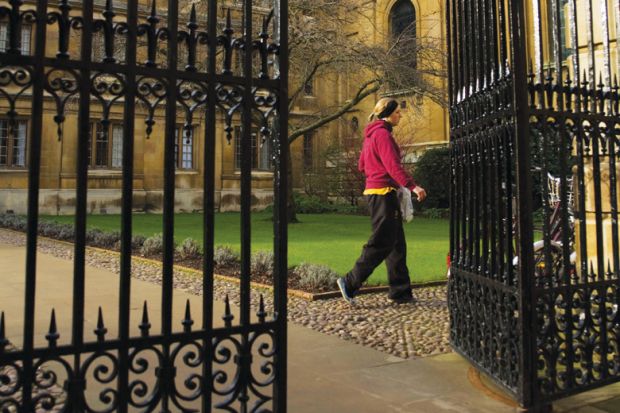An Uber-style online tutoring company that hopes to sign up 10,000 university students as tutors by the end of the year to help prepare pupils for higher education claims that its service can help applicants from poorer backgrounds get in to top institutions.
But one access expert has warned that the spread of private tutoring risks exacerbating the advantage of richer pupils whose parents can afford to pay.
As with users of the taxi service Uber, those receiving tuition at Spires rate their tutors on a five-star scale. If a tutor receives a one- or two-star rating, the company reviews the lesson to see what went wrong, explained founder Nick Green.
It also uses an algorithm to match learners to available tutors, rather like Uber matches passengers to available cars, he explained.
So far, the firm has signed up 120 students at the universities of Oxford and Cambridge as tutors and has 400 learners on its books, although Mr Green said it would soon reach capacity at these institutions and expand to other universities. Around half of learners were being taught subject knowledge, and the others were preparing for Oxbridge entry, he said.
“We would like to have 10,000 [university] students on our books by the end of the year. In terms of growth numbers, we have grown by over 100 per cent week-on-week over the past month,” he said. The company was founded in May 2015.
Of the £24 an hour paid by learners, £21 goes to the tutor and £3 to the company, he said, adding that it was still currently running at a loss. This per-hour cost is substantially lower than face-to-face tuition, he claimed.
Mr Green said that many of those signing up for tuition are the children of recent migrants to the UK, and said online tuition could better reach those outside London and in rural areas.
The company’s website sells the service as something that can enhance social mobility. “Our aim is to make that experience affordable to as many parents as possible and level the playing field in those pre university examination years,” it says.
But Nik Miller, director of the Bridge Group, which researches social mobility, questioned this claim.
“Private tuition is becoming an increasingly integral part of the education system for some groups of pupils,” he said. “The industry is worth over £6 billion and almost half of pupils in London have private tutors.”
“Professionally delivered private tutoring can help to complement the good work in schools, and online provision should open access to a wider group,” he said. “However, it is another opportunity that risks widening the attainment gap between rich and poor, mainly because of the costs associated with it. Those in the top fifth of the income range are four times more likely to access a private tutor.”
Mr Green countered: “I would like to think that we will increase social mobility by being able to offer private tuition to a lot more than just the top fifth.”
Register to continue
Why register?
- Registration is free and only takes a moment
- Once registered, you can read 3 articles a month
- Sign up for our newsletter
Subscribe
Or subscribe for unlimited access to:
- Unlimited access to news, views, insights & reviews
- Digital editions
- Digital access to THE’s university and college rankings analysis
Already registered or a current subscriber?






